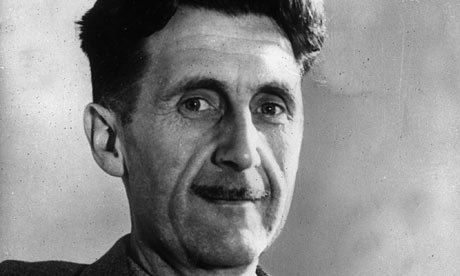Control over the past is “more terrifying than mere torture and death,” writes George Orwell ([1949] 2006, p.28) in his dystopian novel, Nineteen-Eighty Four.
Orwell in this novel ridiculed all the ‘totalitarian nightmares’ for manipulating history. He particularly derided the ruling Party’s slogan:
Who controls the past controls the future:
Who controls the present controls the past.
“The monopolistic nation states and ‘powers that be’ do not like plurality as it threatens the uniform worldview they want citizens/subjects to hold. Totalitarian regimes were the worst culprits in this regard”. (Yadav, 2002)
According to Heywood (2007, p.217), “totalitarianism is an all-encompassing system of political rule that is typically established by pervasive ideological manipulation (italics mine) and open terror and brutality.”
Nineteen Eighty-Four (first published in 1949) tells the story about Oceania, a society ruled by the oligarchic dictatorship of the Party. Life in the Oceanian province of Airstrip One is a world of perpetual war, pervasive government surveillance, and incessant public mind control. This is accomplished with a political system named English Socialism (Ingsoc), which is administered by privileged Inner Party elite. Yet they too are subordinated to the totalitarian cult of personality of Big Brother, the deified Party leader. The protagonist, Winston Smith, is a member of the Outer Party who works for the Ministry of Truth, which is responsible for propaganda and historical revisionism. His job is to re-write past newspaper articles so that the historical record is congruent with the current party ideology.
This novel popularised the adjective Orwellian, which refers to “official deception, secret surveillance, and manipulation of the past (italics mine) in service to a totalitarian or manipulative political agenda” (see Wikipedia, Nineteen-Eighty Four).
Orwell writes “The mutability of the past is the central tenet of Ingsoc. Past events, it is argued, have no objective existence, but survive only in written records and in human memories. The past is whatever the records and the memories agree upon. And since the Party is in full control of all records and in equally full control of the minds of its members, it follows that the past is whatever the Party chooses to make it”. (Orwell, op.cit., p.181)
“[B]y far the more important reason for the readjustment of the past is the need to safeguard the infallibility of the Party. It is not merely that speeches, statistics, and records of every kind must be constantly brought up to date in order to show that the predictions of the Party were in all cases right. It is also that no change in doctrine or in political alignment can ever be admitted. For to change one's mind, or even one's policy, is a confession of weakness”. (Ibid., pp.180-181)
Various regimes have adopted this technique of manipulation of history to strengthen their hold on the subjects.
So, Napoleon entrusted the administration of history writing to his Minister of Police. He is also reported to have told this minister that the past be treated in such a manner that anyone who reads that history heaves a sigh of relief on reaching 'our rule' (Gooch,1956 cited in Yadav, 2002).
Similarly, Hitler declared that the more urgent goal of history lay not in the 'objective presentation' of facts but in instilling national pride and in recalling the growth of the united nation due to the efforts of German heroes like Charlemagne, Luther and Bismarck topped by Hitler himself. Consequently, Hitler also erased the French Revolution from the curriculum to prevent the German students from turning into democrats (Southgate, 1996 cited in Yadav, 2002).
Ideologically motivated history was also the norm in USSR. For example, in late 1920s the role of Trotsky was eliminated from narratives of the Great October Revolution, a historical manipulation satirized by George Orwell in his famous novella Animal Farm (1945). This was the result of his questioning the Stalin regime - whether the policy of the Soviet socialist rule was a dictatorship of the proletariat or a dictatorship over them? (Stern, 1970 cited in Yadav, 2002)
The educational establishment in India under the Bharatiya Janata Party (BJP)-led coalition rule from 1998-2004 also set out on a similar agenda of manipulating history.
This is the introductory chapter of my dissertation submitted at Asian College of Journalism. The whole document can be read here -
You can read George Orwell's Nineteen-Eighty Four here - http://orwell.ru/library/novels/1984/english/en_p_1
Image Courtesy:
http://www.extremetech.com
Image Courtesy:
http://www.extremetech.com








